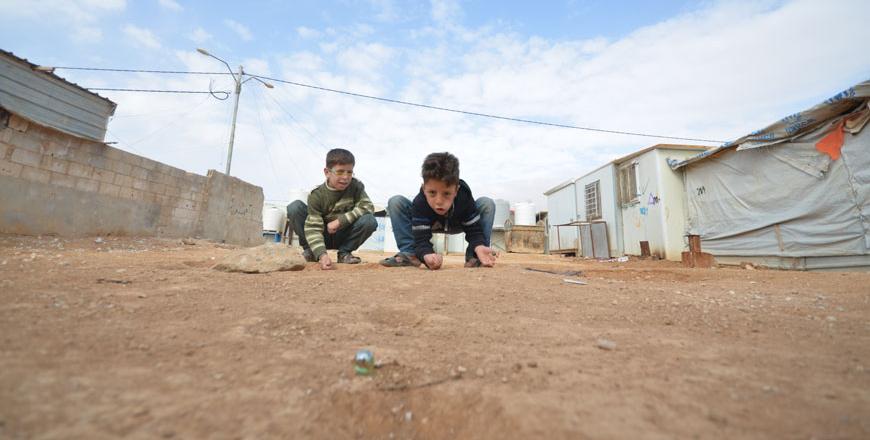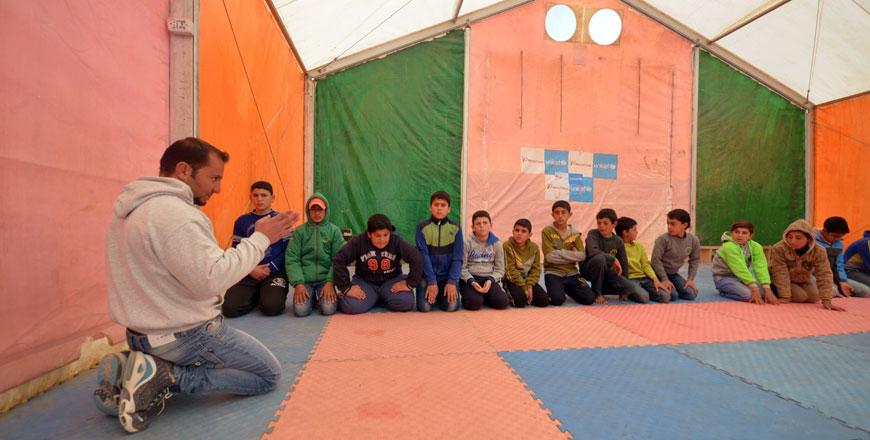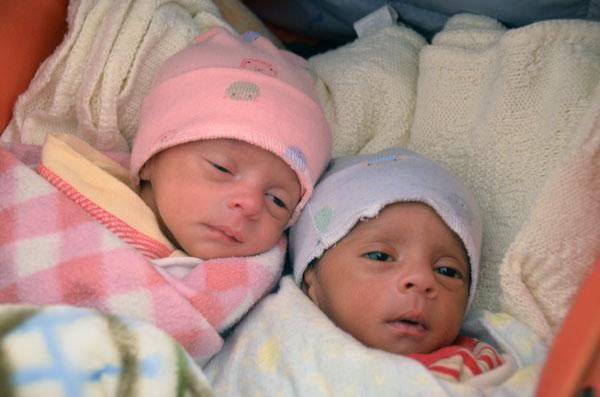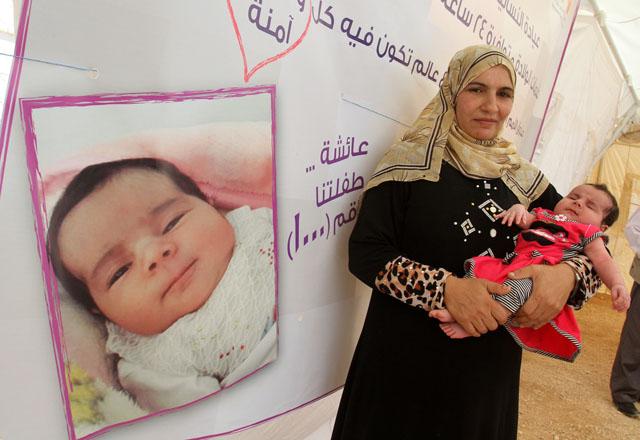You are here
As Syrian crisis drags on, refugees struggle to establish ‘positive’ connection between war generation, homeland
By Muath Freij - Mar 08,2016 - Last updated at Mar 08,2016

Children of Mohammad Mansour play marbles outside their family's caravan at the Zaatari camp in this recent photo (Photo by Muath Freij)
ZAATARI REFUGEE CAMP/AMMAN –– When Mohammad Krad and his wife received their first baby in the Zaatari Refugee Camp, the joy of having their first son turned into a major concern as the Syrian crises dragged on.
Krad, who has been in the camp for four years, said that months before the beginning of the turbulence, he decided to get married for the second time because he wanted to have children.
"My son was born here and he is two years old now. I was so happy to have him at first, but now I am concerned about his future," Krad, a former wrestler, told The Jordan Times in a recent interview at the camp.
Krad's concern is how to ensure that his son, who is among a new Syrian generation that was born in Jordan, develop a sense of belonging to the homeland, a country he has never seen and has zero memories there.
Daniel Baker, regional humanitarian coordinator at the UNFPA and the head of the agency's country office in Jordan, said in a recent interview with The Jordan Times that the number of babies born in Jordan's largest camp, some 90km northeast of Amman, stands at around 10,000 since the inception of the camp.
The number of registered Syrian children who are aged not more than four years old is 102,655 while Syrians aged between five and 11 are numbered at 139,492, according to UNHCR figures.
Alyaa Al Ansaary, RH programme manager at Jordan Health Aid Society, said there are many reasons why women give birth in the camp.
"Sometime it is for the sake of compensation for offspring lost in Syria war. And given that we face a problem of early marriage, we need to convince them to postpone pregnancy, but this is not an easy task," she told The Jordan Times in a recent interview.
As the Syrian conflict turns five this year, refugees interviewed by The Jordan Times echoed Krad’s concerns.
Amal Hoshan, a 42-year-old mother of five, said when she arrived in the camp three years ago, her daughter Farah was only one-year-and-a-half.
Parents resort to simple techniques to establish a connection between their children and the motherland. “We show them photos of the good old days, for example,” said Hoshan, a football coach.
It is not easy to skip war details when you talk to a five or six-year-old child living in a camp amid a crowd of refugees and a never-stopping talk about their tragedy, let alone news , she said.
“When we see wounded people on TV, we change the channel.”
Farah’s older sisters are helping by telling her nice stories about the village and the house across the border.
Krad is aware of this. As a wrestling coach, “I keep telling them details about the Syrian cities I visited during the competitions I took part in to make them curious, hoping that one day they will be visiting these places,” he added.
Mohammad Mansour sees the issue from another angle and he is not worried.
“Jordan and Syria have the same language and traditions so I do not see any difference here and there and they will get adapted to the lifestyle in Syria easily,” the 36-year-old told The Jordan Times his caravan.
Krad stressed that just in case, all families need psychological support once they return to Syria. They need to erase the traces of war from their minds and communities, he explained.
UNICEF Representative to Jordan Robert Jenkins agreed, stressing on the importance of effective psychosocial support.
Such a programme, he said, should include “interaction with children in a way that enables them to deal with any trauma they have experienced in order to positively engage in their environment. However, many of those tools, such as art and music, includ engaging with history and original culture,” he told The Jordan Times at his office in Amman.
UNFPA’s Baker said there are several such programmes under implementation in the camp, employing songs and other forms of art to teach children.
“If we want a good future for Syria, we need healthy babies right now and that’s what we are trying to do, so when they go home they can rebuild Syria,” he added.
For Krad, “the problem is not to survive the war any more; it is how to survive the impact of the war”.
Related Articles
ZAATARI REFUGEE CAMP –– Daraa-born Mohammad Krad's passion for wrestling and his belief in his abilities transformed him from a disabled chi
ZAATARI REFUGEE CAMP — The UNFPA celebrated on Tuesday the safe delivery of 5,000 Syrian babies at the Zaatari Refugee Camp at the UN agency
The UNFPA on Monday celebrated the birth of baby number 1,000 at its clinic in the Zaatari Refugee Camp, which currently houses over 85,000 Syrians.

















